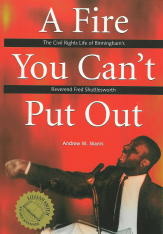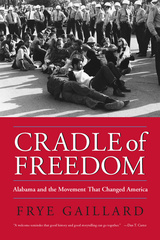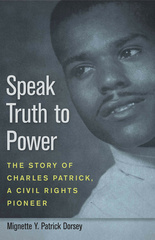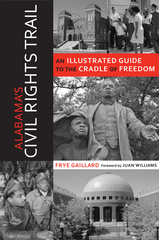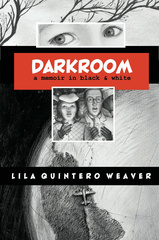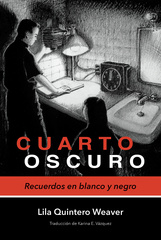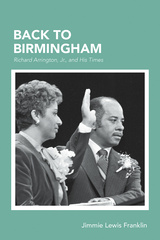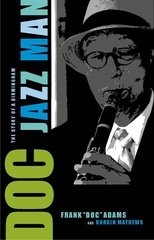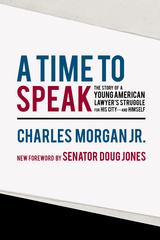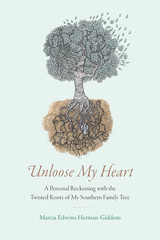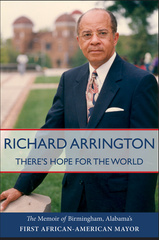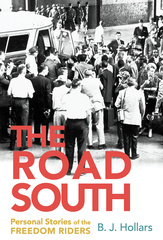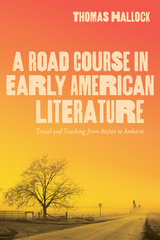240 pages, 6 x 9
21 B&W figures - 1 map
Paperback
Release Date:22 May 2023
ISBN:9780817361068
Learning from Birmingham
A Journey into History and Home
University of Alabama Press
A steel town daughter’s search for truth and beauty in Birmingham, Alabama
“As Birmingham goes, so goes the nation,” Fred Shuttlesworth observed when he invited Martin Luther King Jr. to the city for the transformative protests of 1963. From the height of the Civil Rights Movement through its long aftermath, images of police dogs, fire hoses and four girls murdered when Ku Klux Klan members bombed the Sixteenth Street Baptist Church have served as an uncomfortable racial mirror for the nation. Like many white people who came of age in the Civil Rights Movement’s wake, Julie Buckner Armstrong knew little about this history. Only after moving away and discovering writers like Toni Morrison and Alice Walker did she realize how her hometown and family were part of a larger, ongoing story of struggle and injustice.
When Armstrong returned to Birmingham decades later to care for her aging mother, Shuttlesworth’s admonition rang in her mind. By then an accomplished scholar and civil rights educator, Armstrong found herself pondering the lessons Birmingham holds for a twenty-first century America. Those lessons extended far beyond what a 2014 Teaching Tolerance report describes as the common distillation of the Civil Rights Movement into “two names and four words: Martin Luther King Jr, Rosa Parks, and ‘I have a dream.’” Seeking to better understand a more complex local history, its connection to broader stories of oppression and resistance, and her own place in relation to it, Armstrong embarked on a journey to unravel the standard Birmingham narrative to see what she would find.
Beginning at the center, with her family’s 1947 arrival to a housing project near the color line, within earshot of what would become known as Dynamite Hill, Armstrong works her way over time and across the map. Weaving in stories of her white working-class family, classmates, and others not traditionally associated with Birmingham’s civil rights history, including members of the city’s LGBTQ community, she forges connections between the familiar and lesser-known. The result is a nuanced portrait of Birmingham--as seen in public housing, at old plantations, in segregated neighborhoods, across contested boundary lines, over mountains, along increasingly polluted waterways, beneath airport runways, on highways cutting through town, and under the gaze of the iconic statue of Vulcan.
In her search for truth and beauty in Birmingham, Armstrong draws on the powers of place and storytelling to dig into the cracks, complicating easy narratives of civil rights progress. Among the discoveries she finds in America’s racial mirror is a nation that has failed to recognize itself in the horrific images from Birmingham’s past and to acknowledge the continuing inequalities that make up the Civil Right’s Movement’s unfinished business. Learning from Birmingham reminds us that stories of civil rights, structural oppression, privilege, abuse, race and gender bias, and inequity are difficult and complicated, but their telling, especially from multiple stakeholder perspectives, is absolutely necessary.
“As Birmingham goes, so goes the nation,” Fred Shuttlesworth observed when he invited Martin Luther King Jr. to the city for the transformative protests of 1963. From the height of the Civil Rights Movement through its long aftermath, images of police dogs, fire hoses and four girls murdered when Ku Klux Klan members bombed the Sixteenth Street Baptist Church have served as an uncomfortable racial mirror for the nation. Like many white people who came of age in the Civil Rights Movement’s wake, Julie Buckner Armstrong knew little about this history. Only after moving away and discovering writers like Toni Morrison and Alice Walker did she realize how her hometown and family were part of a larger, ongoing story of struggle and injustice.
When Armstrong returned to Birmingham decades later to care for her aging mother, Shuttlesworth’s admonition rang in her mind. By then an accomplished scholar and civil rights educator, Armstrong found herself pondering the lessons Birmingham holds for a twenty-first century America. Those lessons extended far beyond what a 2014 Teaching Tolerance report describes as the common distillation of the Civil Rights Movement into “two names and four words: Martin Luther King Jr, Rosa Parks, and ‘I have a dream.’” Seeking to better understand a more complex local history, its connection to broader stories of oppression and resistance, and her own place in relation to it, Armstrong embarked on a journey to unravel the standard Birmingham narrative to see what she would find.
Beginning at the center, with her family’s 1947 arrival to a housing project near the color line, within earshot of what would become known as Dynamite Hill, Armstrong works her way over time and across the map. Weaving in stories of her white working-class family, classmates, and others not traditionally associated with Birmingham’s civil rights history, including members of the city’s LGBTQ community, she forges connections between the familiar and lesser-known. The result is a nuanced portrait of Birmingham--as seen in public housing, at old plantations, in segregated neighborhoods, across contested boundary lines, over mountains, along increasingly polluted waterways, beneath airport runways, on highways cutting through town, and under the gaze of the iconic statue of Vulcan.
In her search for truth and beauty in Birmingham, Armstrong draws on the powers of place and storytelling to dig into the cracks, complicating easy narratives of civil rights progress. Among the discoveries she finds in America’s racial mirror is a nation that has failed to recognize itself in the horrific images from Birmingham’s past and to acknowledge the continuing inequalities that make up the Civil Right’s Movement’s unfinished business. Learning from Birmingham reminds us that stories of civil rights, structural oppression, privilege, abuse, race and gender bias, and inequity are difficult and complicated, but their telling, especially from multiple stakeholder perspectives, is absolutely necessary.
So much of this book speaks to the process of recovering a history more accurate and coherent than the stories . . . gleaned from our formal or informal educations and also provides commentary on the ways in which history is told or not told, taught or not taught, remembered or misremembered.’
—B. J. Hollars, author of The Road South: Personal Stories of the Freedom Riders
'There’s a point in Learning from Birmingham, where Julie Buckner Armstrong describes how she needed to leave Birmingham to better see the truth of her hometown. Yet it was Birmingham – a city of oppression, and repression, and finally progression -- that 'laid the foundation for the work of waking up that needed to be done' in the world. It is but one of many profound truths in these pages. Birmingham is a city that almost blew itself up for the cause of hate. When you dare to stare it in the face – as Armstrong has done through family, and history, and honest self-reflection -- you can’t help but see yourself, and your own responses to injustice. When you really see a place like Birmingham, you cannot help but want to change the world.
—John Archibald, Pulitzer 2018, Commentary, author of Shaking the Gates of Hell: A Search for Family and Truth in the Wake of the Civil Rights Revolution
'Having long educated students and teachers about the ‘modern’ Civil Rights Movement in the U. S., Julie Buckner Armstrong takes herself ‘back to school’ in Learning from Birmingham. She returns to this iconic city of her birth to trace her family’s history in order to tell a larger story about the history of her hometown, complete with an unflinching view of its legendary violence, resilient racism, and the elusive redemption it seems determined to find.'
—Deborah E. McDowell, Alice Griffin Professor of English at the University of Virginia.
Having long educated students and teachers about the ‘modern’ Civil Rights Movement in the US, Julie Buckner Armstrong takes herself ‘back to school’ in Learning from Birmingham. She returns to this iconic city of her birth to trace her family’s history in order to tell a larger story about the history of her hometown, complete with an unflinching view of its legendary violence, resilient racism, and the elusive redemption it seems determined to find.’
—Deborah E. McDowell, Alice Griffin Professor of English at the University of Virginia
‘A strength of this memoir [is that] it doesn’t rely only on the author’s memory; Armstrong spent more than a decade researching, reporting and interviewing to write it . . . What she found running through Birmingham’s history and her own was the thread of silence and denial, especially denial of the racism that so often propelled Birmingham onto the evening news.’
—Tampa Bay Times
'In her book Learning from Birmingham, Armstrong seeks the heart of her own story in the context of a city’s history that is by turns horrible and deeply inspiring.
—James L. Baggett, Birmingham Watch
Julie Buckner Armstrong is professor of English at the University of South Florida. She is author of Mary Turner and the Memory of Lynching and editor of The Cambridge Companion to American Civil Rights Literature.



